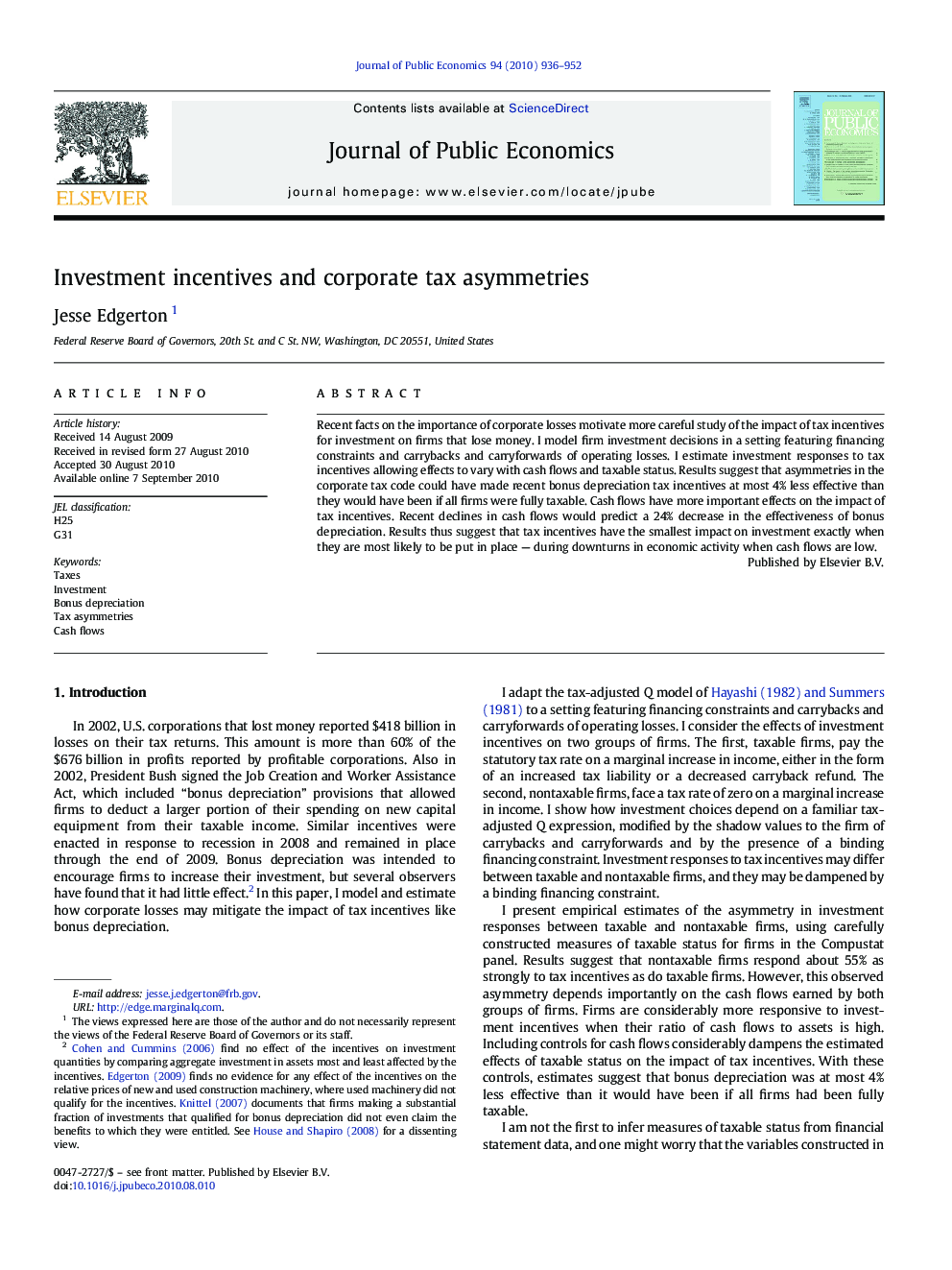| Article ID | Journal | Published Year | Pages | File Type |
|---|---|---|---|---|
| 969809 | Journal of Public Economics | 2010 | 17 Pages |
Recent facts on the importance of corporate losses motivate more careful study of the impact of tax incentives for investment on firms that lose money. I model firm investment decisions in a setting featuring financing constraints and carrybacks and carryforwards of operating losses. I estimate investment responses to tax incentives allowing effects to vary with cash flows and taxable status. Results suggest that asymmetries in the corporate tax code could have made recent bonus depreciation tax incentives at most 4% less effective than they would have been if all firms were fully taxable. Cash flows have more important effects on the impact of tax incentives. Recent declines in cash flows would predict a 24% decrease in the effectiveness of bonus depreciation. Results thus suggest that tax incentives have the smallest impact on investment exactly when they are most likely to be put in place — during downturns in economic activity when cash flows are low.
